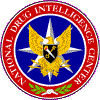ARCHIVED
![]() To Contents
To Previous Page To Next Page
To Publication Page To
Home Page
To Contents
To Previous Page To Next Page
To Publication Page To
Home Page

|
National Drug Intelligence Center New Jersey Drug Threat Assessment Update April 2004 MarijuanaMarijuana is the most commonly abused illicit drug in New Jersey. There were a significant number of marijuana-related treatment admissions in the state each year from 2000 through 2002, and the number gradually increased during that period. According to the New Jersey Department of Health and Senior Services, there were 5,714 primary treatment admissions for marijuana abuse in New Jersey in 2000, 5,730 in 2001, and 6,052 in 2002. According to DAWN data, the number of marijuana ED mentions in the Newark metropolitan area increased from 647 in 2001 to 944 in 2002, although there were significantly fewer marijuana ED mentions than mentions related to cocaine or heroin. (See Table 1 in Cocaine section.) Marijuana is the most widely available and most frequently seized illicit drug in New Jersey. According to the NDTS 2003, 96.9 percent of New Jersey law enforcement agencies reported that marijuana was readily available, although only 30.6 percent of New Jersey law enforcement agencies identified marijuana as their greatest drug threat. According to FDSS data, marijuana accounted for 57.0 percent (1,626 of 2,862 kg) of the illicit drugs seized by federal law enforcement officials in the state in 2002. USSC data indicate that the percentage of drug-related federal sentences related to marijuana in New Jersey in FY2001 (8.4%) was significantly lower than the percentage nationwide (32.8%). Marijuana prices are relatively stable in the state. In northern New Jersey domestic marijuana sold for $600 to $4,500 per pound, $50 to $450 per ounce, and $5 to $25 per gram in the third quarter of FY2003, according to the DEA Newark Division. In southern New Jersey domestic marijuana sold for $800 to $2,000 per pound, $250 to $350 per ounce, and $10 to $100 per gram during that period. "Hydro," typically referring to marijuana produced from hydroponically grown cannabis, has been available in New Jersey for several years; it is produced locally and in Canada. The DEA Newark Division reports that hydro sold for $3,800 to $4,500 per pound in the northern part of the state and for $4,800 per pound in the southern part in the third quarter of FY2003. Also, various New Jersey law enforcement officials have seized marijuana that is referred to as hydro but is marijuana that has been saturated in a liquid, possibly PCP, that reportedly increases the effect of the drug. The DEA Newark Division further reports that in the second quarter of FY2003 marijuana also was distributed under the names "189," which sold for $1,900 per pound, and "Arizona," which sold for $1,200 per pound. Cannabis is cultivated both indoors and outdoors throughout rural New Jersey, particularly in Atlantic, Cumberland, Gloucester, and Warren Counties. It also is cultivated indoors in metropolitan areas of the state; indoor grows often are located in private residences. Cannabis plants cultivated outdoors often are hidden in farmers' fields by replacing corn stalks with cannabis plants or by planting the cannabis between rows of corn. According to the DEA Domestic Cannabis Eradication/Suppression Program, law enforcement officials eradicated 831 plants from outdoor grows in New Jersey in 2001 and 957 in 2002. In addition, law enforcement officials eradicated 182 plants from indoor grows in the state in 2001 and 1,345 in 2002. Although Jamaican and Mexican criminal groups are the most significant transporters of marijuana, no particular criminal group or independent dealer controls the transportation of marijuana into the state. Most of the marijuana available in the state, particularly in Newark, originates in Mexico and Jamaica. Marijuana produced in Mexico frequently is smuggled in multiton shipments in tractor-trailers from California and southwestern states into New Jersey. Additional quantities of Mexico-produced marijuana, usually in amounts ranging from 7 to 30 pounds, typically are transported into the state via package delivery services, on commercial aircraft, and in private vehicles. Marijuana produced in Jamaica usually is smuggled into New Jersey on commercial maritime vessels and aircraft and via package delivery services. Some marijuana produced in Jamaica is smuggled in maritime vessels to other U.S. states and then transported in private and commercial vehicles into New Jersey. Although Jamaican and Mexican criminal groups are significant marijuana distributors, no single criminal group or independent dealer controls the wholesale- or retail-level distribution of marijuana in New Jersey. Marijuana, typically sold in small vials, tin foil, or small plastic bags, is purchased by a diverse group of individuals at open-air drug markets, at private residences, in nightclubs, and on college campuses.
|
End of page.